Relevant Overviews
- Communication Strategy
- Content Strategy
- Online Strategy
- Online Community Management
- Social Media Strategy
- Content Creation & Marketing
- Online Architecture
- Digital Transformation
- Change & Project Management
- Personal Productivity
- Innovation Strategy
- Surveillance Capitalism, Social media and Polarisation (Overview)
- Disinformation in the US 2020 elections
- Communications Tactics
- Psychology
- Social Web
- Media
- Politics
- Communications Strategy
- Science&Technology
- Business
- Large language models
"When we attribute human-like abilities to LLMs, we fall into an anthropomorphic bias ... But are we also showing an anthropocentric bias by failing to recognize" what they can do?
You're in a meeting and the presenter asks, “Does anyone have any questions?”. Do you look around, see "no one else raising their hands, and then chose to pass on the opportunity to clear up your confusion?". Congratulations, you've just fallen for pluralistic ignorance, and it explains a lot.It is when "you feel like you’re different from everyon…
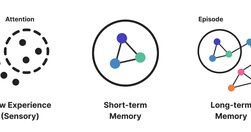
from Alice Albrecht, who "runs re:collect, a startup building an AI-powered thought partner:... advances in AI and cheaper compute lower the bar for getting from a creative idea to a final output... though, we still need to provide the initial seed... and ... judge whether we’re heading in the right direction. We’re still the creative directors o…

A YANSS interview with Adam Grant, author of Think Again: The Power of Knowing What you Don’t Know. Generally an "extensive exploration of how to rethink your own thinking", including his WorkLife podcast interview of Margaret Atwood on procrastination.(When annotating a podcast I really like a transcript, but there was none for this episode so I …
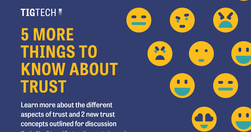
"5 interesting things ... distilled from a helicopter view of trust from various branches of psychology, sociology, behavioural science and Responsible Research and Innovation."focus on others: "perhaps similar to love and happiness, the more doggedly trust is pursued for its own sake, the more elusive it may become", so turn your "attention outwa…
"There are traits that likely prime people to be more prone to holding these beliefs", and you may not be so different. Nice use of interactive games to find out.people with jumping-to-conclusions bias "more likely to endorse conspiracy beliefs ... also correlated with harboring delusions."people with "illusory pattern perception: the tendency to …
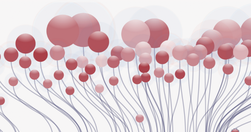
DFRLab’s Foreign Interference Attribution Tracker (FIAT) database (see Interference2020.org) "captures allegations of foreign #us2020 interference... and assesses their credibility, bias, evidence, transparency, and impact".80 allegations were catalogued: a "sharp increase from 2016... vary widely in their evidence and objectivity, sometimes even …

Investigates the endgame of the infocopalypse brought by deep fakes - "When anything may be real or fake, will we still care to find out the difference, or will we just see what we want to believe?" - ie are we destined to be ruled by our desirability bias, which "means we tend to believe first, then look for things that support those beliefs"?Int…

labelling delusions as irrational suggests that all ‘normal’ cognition is rational... new theory suggests delusions emerge from specific processes in our ‘coalitional psychology’ ... mechanisms ... understand our social environment...most delusions involve social content... Beliefs serve a significant social purpose... cooperate with each other, …

counties that had voted for Donald Trump in 2016 exhibited 14% less physical distancing... higher Covid-19 infection and fatality growth rates ...the hormone oxytocin... promotes bonding... plays a role in trust... When participants trusted and felt trusted, oxytocin levels ... jumped... Trust just feels good... But risky if we give it to the w…

This is a piece for people who have been part of the Q Anon movement... beginning to get tired ... starting to get skeptical... Q mostly stopped making specific predictions after a series of embarrassing failures... demanding that we all Trust the Plan and stop asking why Q is always wrong... There’s a reason you got scammed... why did you keep be…
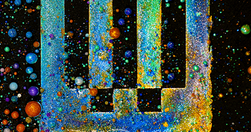
GPT-3... AI that can produce shockingly human-sounding (if at times surreal) sentences... imagine a future in which the vast majority of the written content ... is produced by machines... adjust, and adapt, to a new level of unreality ...video may turn out to be the easiest to detect ... Politicians will now be able to dismiss real, scandalous vid…

arguing with them or debunking their theories is likely only to generate publicity or money for them... generate a fake air of controversy over climate action ... deniers ... four different categories: the shill, the grifter, the egomaniac and the ideological fool... the fourth type of climate denier... utterly blinded by ... free-market creed. Th…

Covid-19 case numbers are now spiking in many counties across West Texas ... [but] resolve of ... skeptics appears to be stiffening... the denial of facts is often rooted in identity and belonging, not in ignorance ...people who deny science ... trying to uphold membership in ... a political or religious affiliation or some other group ... a commu…

active information avoidance... keeping our senses away from information that might be useful, that we know is out there, that would cost us nothing to obtain, but that we’d still rather not learn...
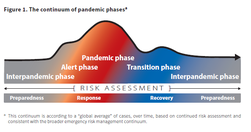
There are about 175 known cognitive biases to date. I will share some of the ones that I think are the most significant for designers... It is important that we not learn about biases to simply point out errors in others... we [need] to spot errors in our own thinking ...confirmation bias ... conservatism bias ... [influence us] to select and use …

when something important is missing in your life, your brain can only seem to focus on that missing thing... scarcity... leads you to take certain behaviors that in the short term help... in the long term only make matters worse... robs people of insight... in a hole, we sometimes dig ourselves even deeper...human brain is wired to respond to scar…
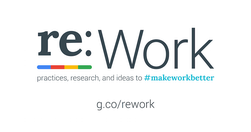
Begin unbiasing with education, accountability, measurement, and more

The editor-in-chief of The Lancet... I do believe lives could have been saved had we acted earlier"... demanded transparency on the opaque epidemiological models ... included ... “herd immunity”... The idea you can strip out politics from medicine or health is historically ignorant. The medical establishment should be much more politicised... atta…
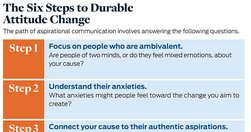
Organizations must connect their causes to the personal aspirations of their audiences to transform public attitudes... having a majority is not enough... You need a majority that can’t be eroded or peeled away... in 1996... 27 percent of the US public supported legal recognition of same-sex marriages... 60 percent in 2015 ... the new normal... ac…
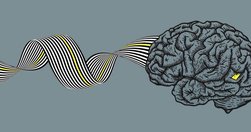
How fake news gets into our minds, and what you can do to resist it... to understand why it gets into our mind... by examining how memory works and how memories become distorted.... Fake news often relies on misattribution ... we retrieve things from memory but can’t remember their source... one of the reasons advertising is so effective... Repe…

many activists working to create positive change ... seem to think that if they just get their ideas to “go viral” they will ... dominate the discourse. The great lie of this approach is that no singular discourse exists! Each community is now capable of building consensus with itself, where the like-minded talk to others like themselves while fo…

many of the initial conclusions ...about the scope of fake news consumption, and its effects on our politics, were exaggerated or incorrect. Relatively few people consumed this form of content directly during the 2016 campaign, and even fewer did so before the 2018 election. Fake news consumption is concentrated among a narrow subset of Americans …

intellectual humility, the crucial characteristic that allows for admission of wrongness... crucial for learning... difficult to foster... a virtue worth striving for... entertaining the possibility that you may be wrong and being open to learning ...actively curious about your blind spots... It’s about asking: What am I missing here? our reali…
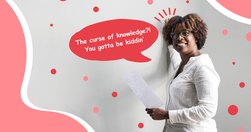
The curse of knowledge is a cognitive bias that occurs when an individual, communicating with other individuals, unknowingly assumes that the others have the background to understand... seen at all levels of a company... if you already know the answer... tend to underestimate the difficulty of the question or the problem... become so immersed in t…

the Oxford Circus panic ... was amplified by social media.... Fear can be transmitted digitally as easily as it can physically—and that’s a problem because digital technologies reach everyone.... the English-speaking world is in the middle of a fear pandemic... Cognitive biases leave us ill-equipped ... Amygdala hijacks and warped media business m…
concern that social media sites contribute to political polarization by creating ``echo chambers" that insulate people from opposing views ... We find that Republicans who followed a liberal Twitter bot became substantially more conservative post-treatment, and Democrats who followed a conservative Twitter bot became slightly more liberal post-tre…
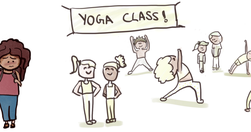
Confirmation bias is the human tendency to seek, interpret and remember information that confirms pre-existing beliefs.... insidious. It affects every choice you make. Every. Single. Day. ... without you noticing. Confirmation bias affects you in 3 ways... Why? You seek evidence that confirms your beliefs because being wrong ... means you’re not …
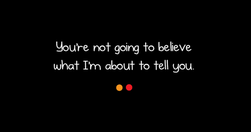
the backfire effect can be hard to replicate in rigorous research... a large-scale, peer-reviewed study ... couldn't reproduce the high-profile 2010 study . ... The trouble is that even when we learn that something is false, we may be able to acknowledge those facts without changing our political position accordingly

crowdsourced trustworthiness ratings are actually much less effective if they exclude the ratings from people who are unfamiliar with a given site. Which is what Facebook plans to do.. “a lack of familiarity is an important cue for untrustworthiness... Excluding ratings from participants who aren’t familiar with a given news source ... “dramatical…
Relevant Overviews
- Communication Strategy
- Content Strategy
- Online Strategy
- Online Community Management
- Social Media Strategy
- Content Creation & Marketing
- Online Architecture
- Digital Transformation
- Change & Project Management
- Personal Productivity
- Innovation Strategy
- Surveillance Capitalism, Social media and Polarisation (Overview)
- Disinformation in the US 2020 elections
- Communications Tactics
- Psychology
- Social Web
- Media
- Politics
- Communications Strategy
- Science&Technology
- Business
- Large language models